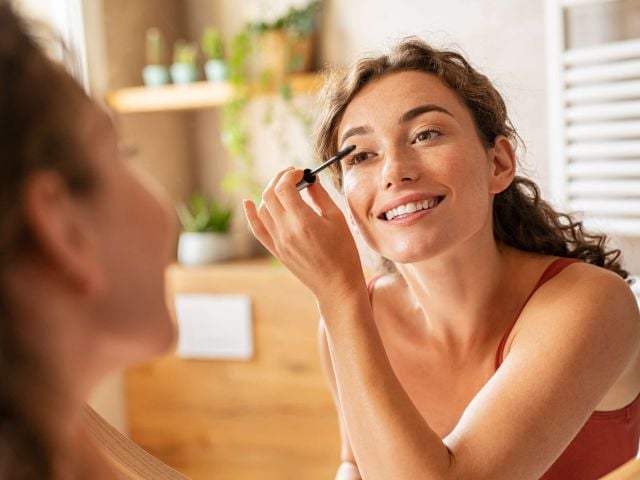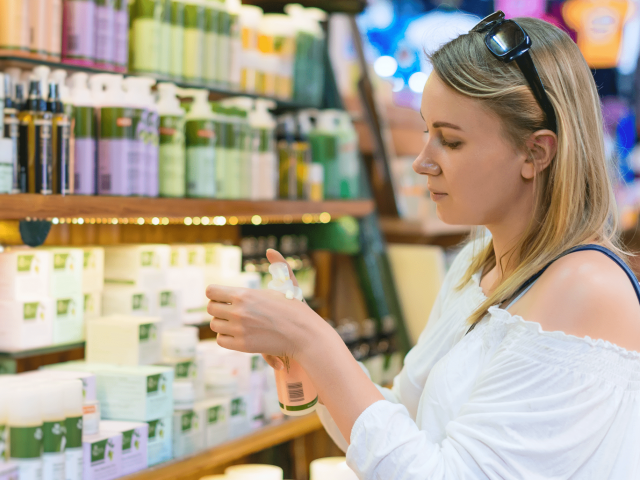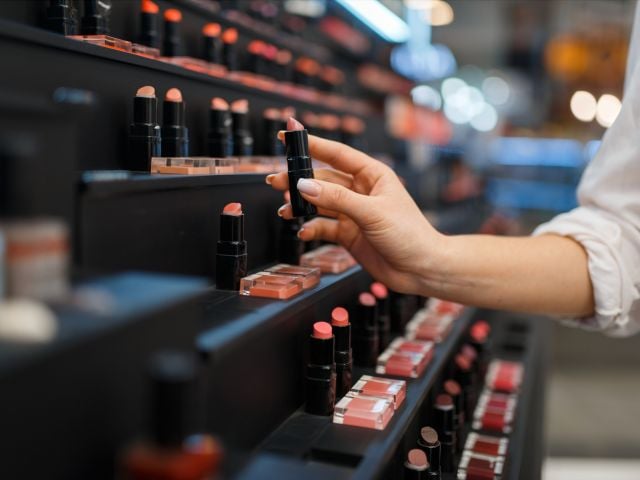
For me, EWG's Skin Deep database has always been a place to get a score. Then, depending where in the 1 to 10 hazard range my personal care product falls (come on, toothpaste, get a 1!), either rush off to buy it, avoid it like the plague, or keep searching. But there's so. much. more. in Skin Deep.
If you, also, haven't been any further than those hazard scores, take a closer look at the gobs of science-based guidance in there. EWG's staff scientists and public health researchers have prepared some great tips - from the simple (no powder on babies!) to the more challenging (don't use it at all). So wherever you are on the green spectrum, there's a step to take that you can do right away. Take, for example, these 9 safer shopping tips:
- Use our What Not To Buy list to avoid especially problematic ingredients -- like mercury, lead, and placenta -- and the products that contain them.
- Use fewer products. Is there something you can cut from your daily routine, or a product you can use less often? By cutting down on the number of chemicals contacting your skin every day, you will reduce any potential health risks associated with your products.
- Use the "Advanced Search" feature of Skin Deep to find products that have fewer potential health issues. Choose a product category and exclude the hazardous ingredients -- carcinogens and neurotoxins, for instance -- and Skin Deep will generate a custom shopping list for you.
- Read labels. Marketing claims on personal care products are not defined under the law, and can mean anything or nothing at all, including claims like organic, natural, hypoallergenic, animal cruelty free, and fragrance free. Read the ingredient label carefully to find evidence that the claims are true.
- Use milder soaps. Soap removes dirt and grease from the surface of your skin, but also strips away your body's own natural skin oils. Choosing a milder soap may reduce skin dryness and your need for moisturizers to replace oils your skin can provide naturally.
- Minimize your use of dark hair dyes. Many contain coal tar ingredients that have been linked to cancer in some studies.
- Cut down on your use of powders; avoid the use of baby powder on newborns and infants. A number of ingredients common in powder have been linked to cancer and other lung problems when they are inhaled. FDA warns that powders may cause lung damage if inhaled regularly.
- Choose products that are "fragrance"-free. Fragrances can cause allergic reactions. Products that claim to be "fragrance free" on the packaging may not be. They could contain masking fragrances that give off a neutral odor. Read the ingredient label -- in products truly free of fragrance, the word "fragrance" will not appear there. Find "fragrance"-free products with our advanced search.
- Reduce your use of nail polish. It's one of the few types of products that routinely contains ingredients linked to birth defects. Paint your toenails and skip the fingernails. Paint nails in a well-ventilated room, or outside, or avoid using nail polish altogether, particularly when you are pregnant. Browse our custom shopping guide for advice on nail polishes that contain fewer ingredients of concern.
Did you find at least 1 to implement right away? I did: I'm forgoing the nail polish this summer. An easy one since with a 3-year-old daughter in the house, because if I wear it, naturally she wants to wear it, too. Just what I need is toxic nail polish on her little toes. No thanks!
[Thanks to Flickr CC and Dreamglow for the great pic]



